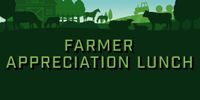The results are in on a study that examined wastewater effluent produced at Altona's lagoon as a possible alternative water source for agricultural purposes.
Prompted by the 2021 drought, the Town teamed up with the University of Manitoba's Civil Engineering department on the one-year study with the hope of making upwards of half-a-million cubic metres of water available to producers.
However, the conclusion outlined in the final report isn't what they'd expected.
"It was fairly close, except there were some issues," explained Public Works Manager, Clint Derksen. "Salt content was an issue. There was some heavier metals in there that chemicals don't agree with and also, they found the way that we discharge the water wouldn't be a good produce for edible crops."
Specifically, the finished product's salinity, iron and uranium levels limit its use to where it couldn't come into contact with the edible part of crops during irrigation, and its hardness is not feasible for chemical spraying.
Of course, the wastewater effluent could be treated further in order to make this concept a reality. However, Derksen says the financial investment required to add the necessary equipment isn't worth it at this time, noting it would run in the millions of dollars.
"We're also almost out of real estate that the lagoon unless, again, we want to spend millions of dollars to properly decommission some cells," he explained.
In a report to Council, the Chief Administrative Officer reported that based on the Town's current and forecasted output of wastewater, there isn't a compelling business case to make those investments. Instead, diluting the treated wastewater by up to 50 per cent with potable water was offered in the report as a more practical solution.
"It's just not as easy, cheap or convenient as it is right now for a company to go and buy potable water. They're still better off doing that," added Derksen.
In its final report, Innovantage, one of the partners in the study along with the University of Manitoba, noted agriculture irrigation accounts for 70 per cent global water usage.
"If this had gone through, had been feasible, it could have made a big difference," added Derksen.
He noted, the Town will keep the report on file with the possibility of further examination if, perhaps, an aggressive grant program, becomes available in the future.
In response to Canada's Online News Act and Meta (Facebook and Instagram) removing access to local news from their platforms, PembinaValleyOnline encourages you to get your news directly from your trusted source by bookmarking this page and downloading the PembinaValleyOnline app.

















